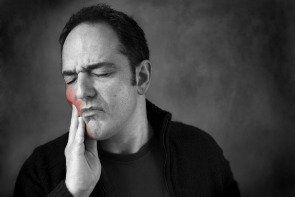Beloit Chiropractor Discusses Treating TMJ with Chiropractic
Dr. Seth Pelock • May 2, 2019
TMJ or temporomandibular joint disorder is a biomechanical joint dysfunction of one or both of the joints of the jaw – a condition that can be extremely painful. TMJ is located directly in front of the ears causing a patient to always notice the grinding, clicking, cracking, and popping when opening and closing the mouth – a disorder ranging from annoyance to extreme pain with limited movement or locking of the jaw.
When functioning properly, these joints act as shock absorbers for the jaw but as people age misalignments become more common, with an estimated more than 3 million plus cases per year in the United States. Continuous stress from chewing can cause soreness and pain in the joints and surrounding musculature leading to jaw pain, headaches, dizziness, and earaches. What is the cause? Perhaps grinding the teeth, jaw trauma, uneven bite, dental work, gum chewing, stress and trauma. Symptoms include pain, asymmetries while opening your mouth, locking, swelling, dislocation, capsulitis, lockjaw, myofascitis, tendonitis, synovitis, and arthritic disease.
Several TMJ Disorder treatments exist but not all chiropractors and dentists treat this disorder. The doctor must take into consideration all the tissues involved and any possible lifestyle changes.
If the jaw has experienced trauma, common in sports, it may need an adjustment but typically TMJ begins in the upper neck. Knocking the upper neck out of alignment will prevent the jaw from functioning properly. The trigeminal nerve, the nerve that innervates the jaw musculature, gets pinched and the muscles don’t work properly, which leads to tension in the jaw.
If you, or someone you know has problems with TMJ, get a chiropractic evaluation and see if the problem can be treated with an adjustment.
Beloit chiropractor Dr. Seth Pelock is certified in several techniques from Palmer College of Chiropractic. Contact us
to schedule an appointment today!













